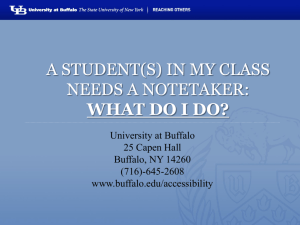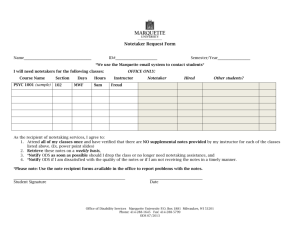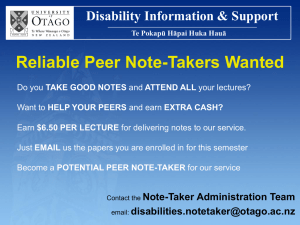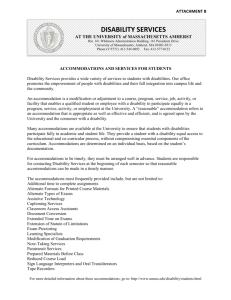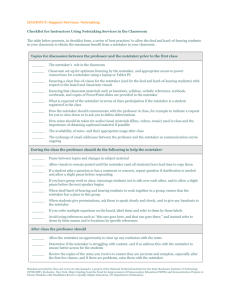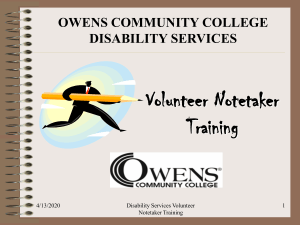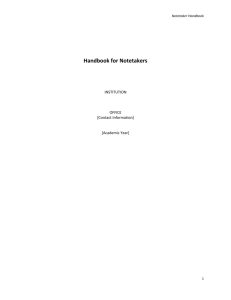DSPS Policy: Authorizing Notetakers and Scribes for Students with
advertisement
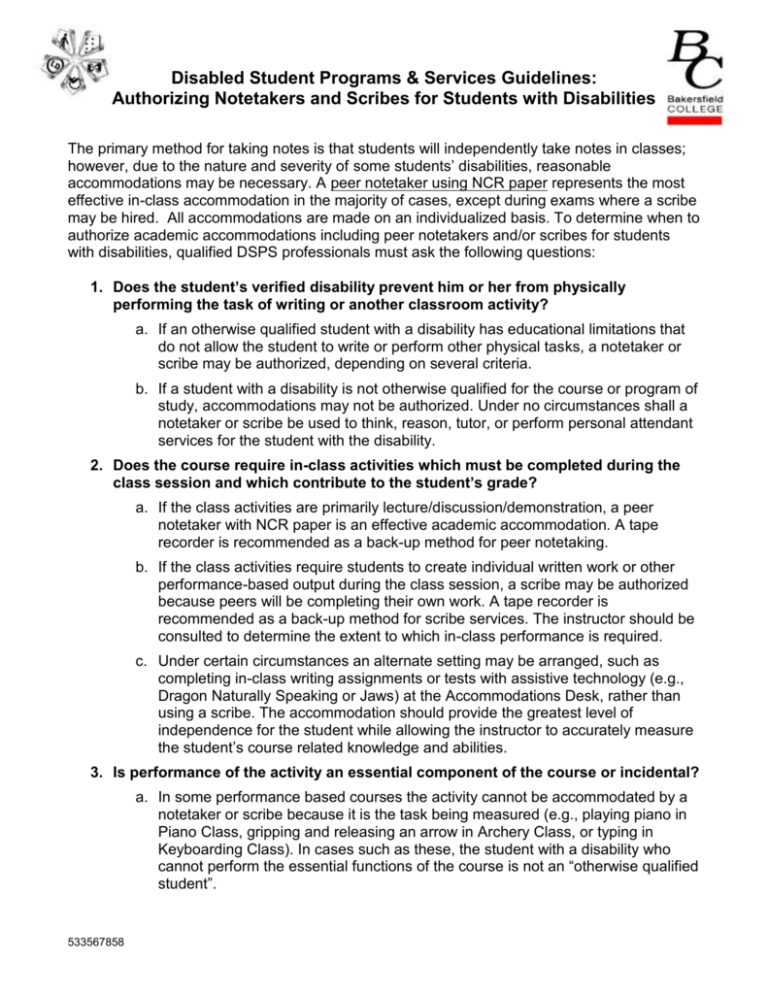
Disabled Student Programs & Services Guidelines: Authorizing Notetakers and Scribes for Students with Disabilities The primary method for taking notes is that students will independently take notes in classes; however, due to the nature and severity of some students’ disabilities, reasonable accommodations may be necessary. A peer notetaker using NCR paper represents the most effective in-class accommodation in the majority of cases, except during exams where a scribe may be hired. All accommodations are made on an individualized basis. To determine when to authorize academic accommodations including peer notetakers and/or scribes for students with disabilities, qualified DSPS professionals must ask the following questions: 1. Does the student’s verified disability prevent him or her from physically performing the task of writing or another classroom activity? a. If an otherwise qualified student with a disability has educational limitations that do not allow the student to write or perform other physical tasks, a notetaker or scribe may be authorized, depending on several criteria. b. If a student with a disability is not otherwise qualified for the course or program of study, accommodations may not be authorized. Under no circumstances shall a notetaker or scribe be used to think, reason, tutor, or perform personal attendant services for the student with the disability. 2. Does the course require in-class activities which must be completed during the class session and which contribute to the student’s grade? a. If the class activities are primarily lecture/discussion/demonstration, a peer notetaker with NCR paper is an effective academic accommodation. A tape recorder is recommended as a back-up method for peer notetaking. b. If the class activities require students to create individual written work or other performance-based output during the class session, a scribe may be authorized because peers will be completing their own work. A tape recorder is recommended as a back-up method for scribe services. The instructor should be consulted to determine the extent to which in-class performance is required. c. Under certain circumstances an alternate setting may be arranged, such as completing in-class writing assignments or tests with assistive technology (e.g., Dragon Naturally Speaking or Jaws) at the Accommodations Desk, rather than using a scribe. The accommodation should provide the greatest level of independence for the student while allowing the instructor to accurately measure the student’s course related knowledge and abilities. 3. Is performance of the activity an essential component of the course or incidental? a. In some performance based courses the activity cannot be accommodated by a notetaker or scribe because it is the task being measured (e.g., playing piano in Piano Class, gripping and releasing an arrow in Archery Class, or typing in Keyboarding Class). In cases such as these, the student with a disability who cannot perform the essential functions of the course is not an “otherwise qualified student”. 533567858 b. If performance of the activity is incidental to the course objectives, it may be accommodated as outlined above. 4. Does a primary accommodation require a secondary accommodation? a. When a student uses sign language interpreters or reads lips, a peer notetaker is an appropriate secondary accommodation. b. When a student uses Braille or other alternate media, hand-written notes from a peer notetaker may need to be converted into an accessible format to be usable by the student. Students are encouraged to learn how to use personal notetaking devices such as BrailleNote to maximize their independence. A tape recorder is recommended as a back-up method for peer notetaking and personal notetaking devices. When determining appropriate academic accommodations, the college policy and procedures must provide for a timely response to requests, an individualized review of the student’s academic needs, a due process grievance procedure, and permit a designated district official with knowledge of accommodations and academic requirements to make an interim decision pending a final resolution. (CCR 56027) 533567858
